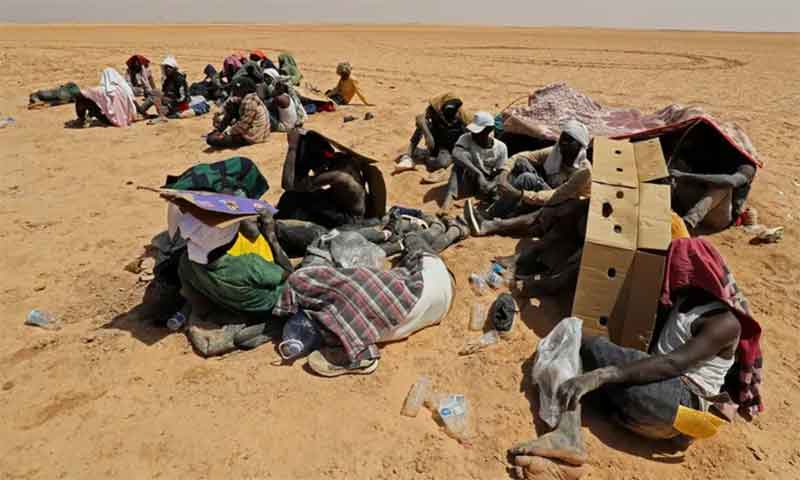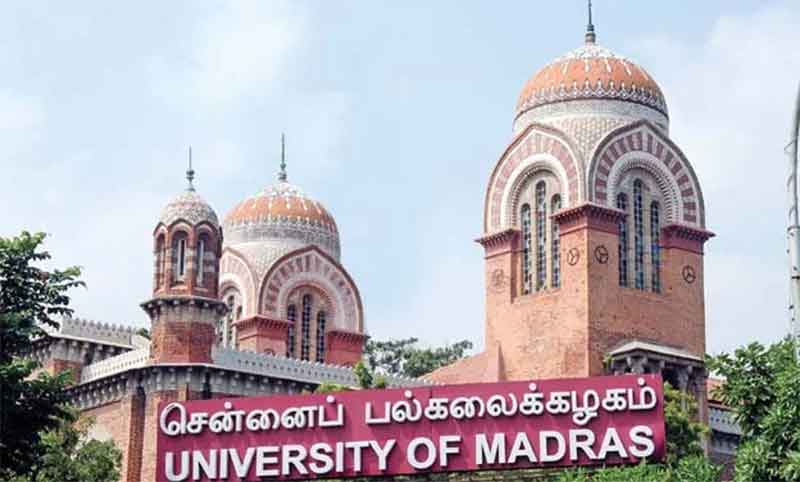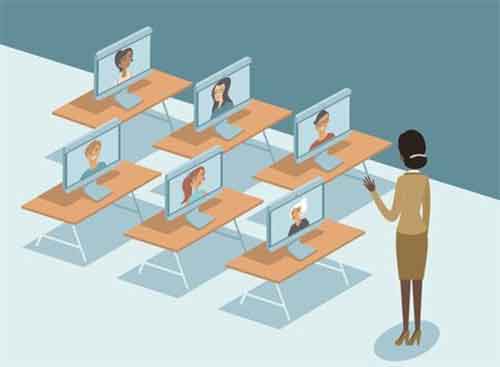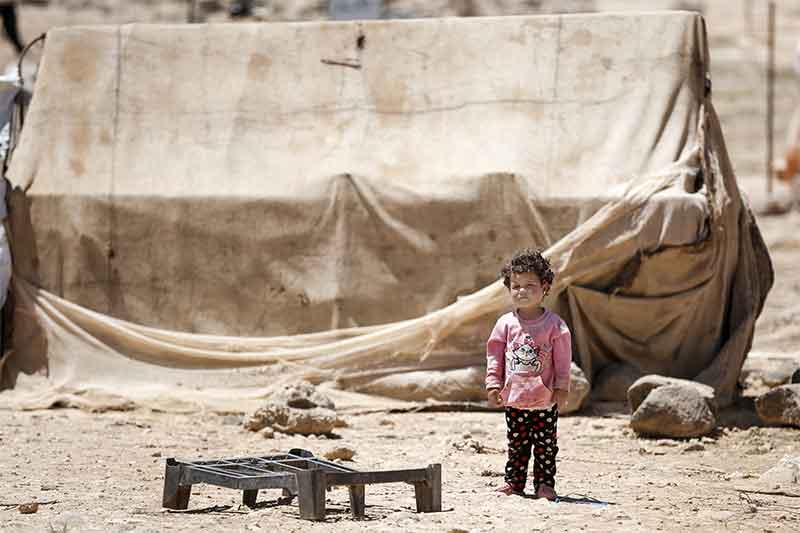
Education for refugees, asylum-seekers, migrants and stateless (RAMS) mobility for education, with all its permutations and dimensions, has been perennial since time immemorial. It is regrettable but veritable platitudes that the modern world is disturbed. The Right to Online Education (ROE) has been at trial and tribulation of unprecedented magnitude since the inception of the Internet. Unfortunately, war and conflict around the world have gripped all societies from continent to continent, from region to region, and from country to country, where discrimination and persecution of people based on their caste, creed, ethnicity, gender, social origin, race, religion, region, and political opinion remained unabated and continued to deprive them of the regular education. Moreover, the massive human rights violations due to aggression, generalized violence, foreign occupation, domestic discrimination, and economic exclusion denied people education in contravention of global recognition of education in constitutions and the right to education in international human rights law (IHRL) instruments.
Due to their structural disadvantage, RAMS students’ educational options are impacted by pressures such as geopolitical objectives, restrictive mobility regimes, and globalization. Thus, it will continue to make Afghans, Bulloch, Chakma, Pakhtoon, and Sri Lankans in South Asia, Hazara and Uzbeks in Central Asia, Rohingyas in South East Asia, Iraqis, Kurdish and Palestinians in Middle-East and Far-East Asia, Congolese, Liberians, Somalis and Sudanese in Africa vulnerable and victim. However, Chechens, Roma, Montagnards, and Acehnese displacements in the Euro-Asia region have further precipitated the education crises.
The Right to Online Education
Many people have expressed scepticism over the closure of institutions due to civil wars and other violent crises, the loss of physical space, and the refusal of visas to allow students to enrol in online courses. Here, the host state’s security and geostrategic dynamics are more important than issues like Internet access, the digital divide, logistics, or privacy. The ROE is still the most favoured option, although its rights have been compromised. The right to education includes the right to online education. In this regard, the Indian Supreme Court acknowledged the existence of the digital divide in 2021. It said that all students, particularly those from disadvantaged social and economic backgrounds, had the right to an education, even if received online. It is indisputable that students from underprivileged backgrounds must have access to online education.
Human Dignity Includes Digital Dignity
Human dignity is inalienable and includes human dignity, which is upheld in most nations worldwide. But the Internet boom has made it more widespread, moving from small towns to all continents. Human dignity is frequently violated on social media sites, including Facebook and Twitter, YouTube and TikTok. The 1948 UDHR’s Article 1 states, “All human beings are born free and equal in dignity and rights.” Human dignity is defined as “human dignity shall be inviolable” in the First Article of The Basic Law for the Federal Republic of Germany (1949). It is the responsibility of all governmental authorities to respect and safeguard it.
The most fundamental difference between refugee education and other forms of international education is that, in the latter, international students are desirable, and the different experiences they bring are seen as an asset to other students and the standing and reputation of the host institution. From a policy perspective, internationalization and transnational mobility are considered means to support the economy by preparing the future workforce to be better adapted to mobile working conditions, cooperate in multicultural teams, work in international corporations or organizations, support trade relationships, tourism, diplomatic or geopolitical interests, as well as to strengthen future collaborations in research and development.
Encountering the Challenges Ahead
The grounds of discrimination and persecution are sufficient to adopt contemporary technological solutions with the widespread introduction of online teaching and learning as the new standard for education, not as an optional or supplemental instrument. To address the difficulties in online mode, new instructional and assessment techniques must be designed and developed consistent with human dignity. It is possible that the current solutions fall short of meeting all needs or that they cannot adequately replace conventional teaching methods. Globally, the discriminatory practices and the protracted closure of educational facilities have altered teaching and learning methods. Widespread and unplanned transition to online learning with unequal access to digital infrastructure exacerbates socioeconomic inequality and the current digital gap. After fleeing armed conflict, most of the world’s refugee students are found in nearby Global South countries. Forced relocation is sometimes prolonged, and no worldwide commitment exists to provide for education. Few attempts are made to provide education oriented towards transnational living, or that offers the flexibility RAMS learners require due to the uncertainty of their futures, in contrast to international education, which values mobility.
Nafees Ahmad is Associate Professor, Faculty of Legal Studies, South Asian University, New Delhi. He co-authored a book “Climate Refugees in South Asia” (Springer) and teaches IHL, IHRL and Comparative Constitutional Law of SAARC Nations. [email protected]














































